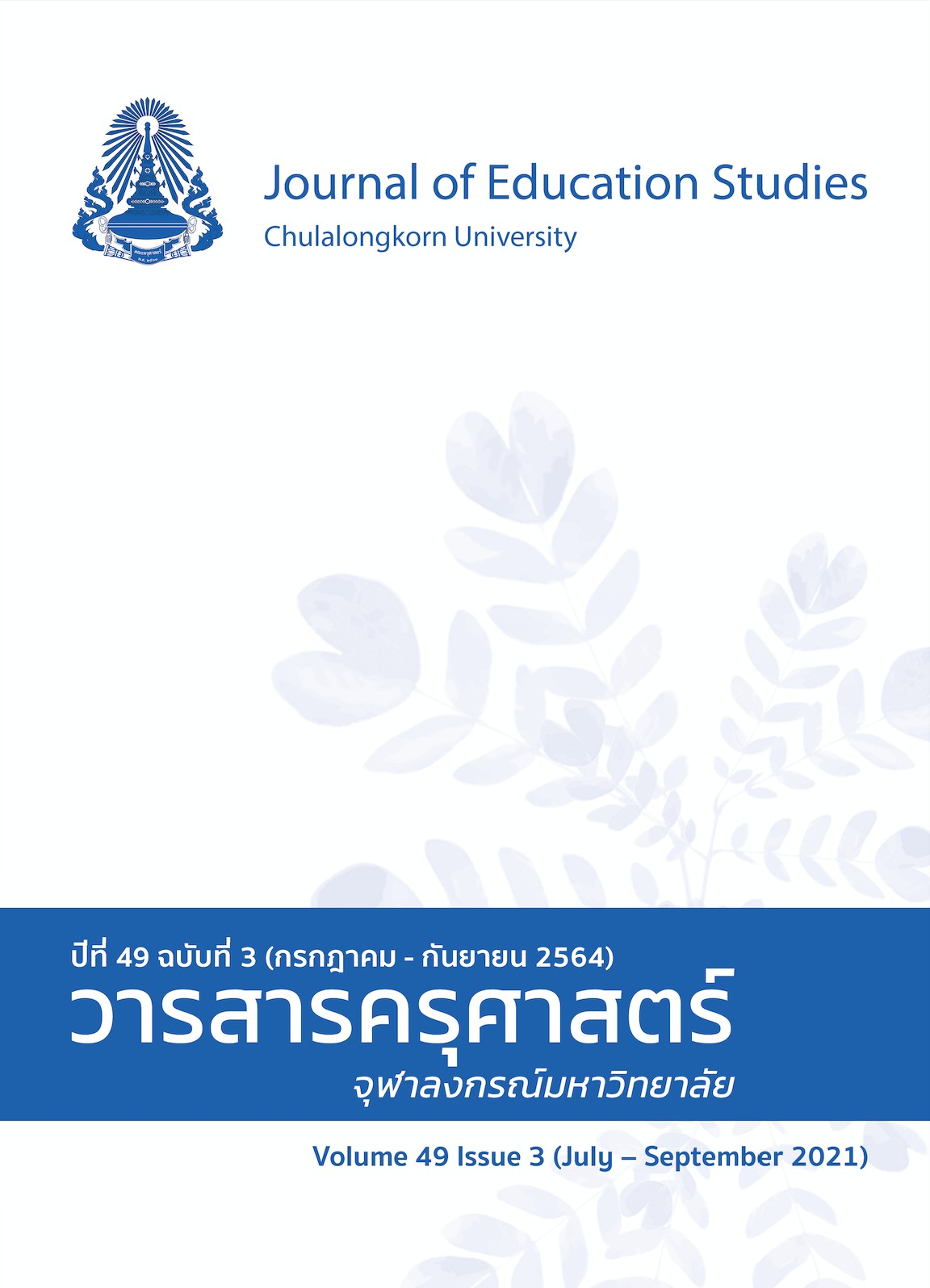The Development of Conceptual Thinking Skills in Social Studies for 21st Century Learners
DOI:
https://doi.org/10.14456/educu.2021.47Keywords:
concept, conceptual thinking, conceptual thinking skills, social studiesAbstract
The development of learners to encourage them to succeed and adapt in the 21st century, especially in social studies learning management, is an important aim to develop learners to become good citizens in society. Social studies teachers need to plan and design learning activities that help build and develop students' potential for conceptual thinking skills. This is to enable learners to apply knowledge to solve problems, seek answers and successfully encounter issues that we face in today's global society. This article presents knowledge of the meaning and significance of the concepts of the importance of conceptual thinking, the concept of social studies, the development of conceptual thinking skills in social studies, and the benefits of conceptual thinking in social studies for 21stcentury learners. through a brain-based approach.
References
เกรียงศักดิ์ เจริญวงศ์ศักดิ์. (2555). การคิดเชิงมโนทัศน์ (พิมพ์ครั้งที่ 8). ซัคเซสมีเดีย.
ลาวัณย์ วิทยาวุฑฒิกุล. (2547). หน่วยที่ 5 การพัฒนามโนมติและหลักการในวิชาสังคมศึกษา. ประมวลสาระชุดวิชา การจัด
ประสบการณ์การเรียนรู้สังคมศึกษา หน่วยที่ 1-5 (พิมพ์ครั้งที่ 8). มหาวิทยาลัยสุโขทัยธรรมาธิราช.
วลัย อิศรางกูร ณ อยุธยา. (2555). หน่วยที่ 1 สังคมศาสตร์และสังคมศึกษา. ประมวลสาระชุดวิชาสารัตถะและวิทยวิธีทางสังคม
ศึกษา หน่วยที่ 1-5. มหาวิทยาลัยสุโขทัยธรรมาธิราช.
วิชัย วงษ์ใหญ่ และ มารุต พัฒผล. (2562). การจัดการเรียนรู้เพื่อเสริมสร้างความคิดรวบยอด. ศูนย์นวัตกรรมหลักสูตรและ
การจัดการเรียนรู้.
สิริวรรณ ศรีพหล. (2554). การจัดการเรียนการสอนเพื่อพัฒนาความเป็นพลโลก. มหาวิทยาลัยสุโขทัยธรรมาธิราช.
สิริวรรณ ศรีพหล. (2554). หน่วยที่ 1 หลักสูตรแกนกลางและหลักสูตรสังคมศึกษา. ประมวลสาระชุดวิชาการจัดประสบการณ์
การเรียนรู้สังคมศึกษา หน่วยที่ 1-5. มหาวิทยาลัยสุโขทัยธรรมาธิราช.
สุวิทย์ มูลคำ. (2553). กลยุทธ์การสอนคิดเชิงมโนทัศน์ (พิมพ์ครั้งที่ 5). ภาพพิมพ์.
ภาษาอังกฤษ
Arends, R. I. (2009). Learning to teach (8th ed). McGraw Hill.
Churches, A. (2008). 21st century pedagogy. http://edorigami.edublogs.org/2008/08/16/21st-century-
pedagogy/
De Cecco, J. P. (1997). The psychology of learning and instruction: Educational psychology (2nd ed).
Prentice-Hall of India.
Eggen, P., & Kauchak, D. (1992). Classroom connections, educational psychology. Macmillan.
Gazzaniga, M., Ivry, R. B., & Mangun, G. R. (2013). Cognitive neuroscience: The biology of the mind (4th ed).
W. W. Norton & Company.
Handjaras, G., & Pietrini, P. (2016). How concepts are encoded in the human brain: A modality
independent. Neurolmage 2016, 135, 232-242.
Trilling, B., & Fade, C. (2009). 21st century skills: Learning for life in our time. John Wiley & Sons.
Woolfolk, A. (2008). Educational psychology (10th ed). Pearson Education.
Downloads
Published
How to Cite
Issue
Section
License

This work is licensed under a Creative Commons Attribution-NonCommercial-NoDerivatives 4.0 International License.




